When it comes to launching an online store, choosing between a Shopify platform or a custom-built website can be a tough decision. It’s not just about the price, as both options come with their own unique pros and cons. The ultimate choice will depend on the specific needs and goals of your business.
In this post, I’ll delve into the key differences between Shopify and custom-built websites, and explore alternative platforms that offer the best of both worlds. That way, you’ll be able to make an informed decision and take your online store to new heights.
Is A Custom Website Worth It?
The decision of whether a custom website is worth it will depend on plenty of factors. Generally though, a custom-built website might be worth it if you want a unique and custom look, as well as complete flexibility and control over your online store.
However, if you’re just starting out, or have limited knowledge and budget, Shopify may be a better option. Shopify offers an extensive range of features and tools to help businesses get up and running quickly and easily, without the need for extensive research or technical knowledge.
Key Differences between Shopify and Custom Site: An Overview
Both Shopify and custom-built websites offer unique benefits and features that can help you succeed online. Here’s a rundown of their key differences:
Web Design
Shopify offers a range of pre-designed templates and a user-friendly interface, making it easy for anyone to create and manage their online store. Custom-built websites offer complete flexibility and customization, but require a higher level of technical knowledge and expertise to set up and manage.
Cost

Shopify operates on a subscription business model, with transparent pricing and fees, simplifying finance budgeting and management. Custom-built websites can be more expensive, as they require a higher level of investment to set up and maintain.
Analytics and Marketing
Shopify offers a range of tools and features you can use to track your sales, understand your customers, and grow your business. Custom-built websites also offer similar features, but they may require additional plugins or integrations to be installed, which can add to the cost and complexity of managing the website.
Customization
Shopify is highly customizable, with a range of themes and plugins available, as well as the option to work with a Shopify Expert. Custom-built websites offer even greater customization options, but they also require a higher level of technical expertise to set up and maintain.
As you can see, each type of platform is meant for clear and specific needs. Shopify is a good option for businesses that are just starting out, or those with limited knowledge and budget, while custom-built websites are ideal for businesses that require a unique and custom look, as well as complete flexibility and control over their online store.
Shopify Vs Custom Site: Detailed Comparison
Now, the section above was just a brief overview. There are a lot more differences between both, so I’ll be going more in-depth here so I can tell you about the more technical stuff as well.
Ease of use
Shopify makes it a breeze to create and manage your online store, with its user-friendly interface. No technical expertise required! With custom-built sites, however, you’ll need to have a higher level of technical knowledge and expertise to set things up and keep them running smoothly.
Templates and Themes

Shopify offers a wide range of pre-designed templates and themes, making it easy to choose one that fits your brand and goals. Custom-built sites give you complete customization options, but it takes more technical know-how to create a unique design.
Apps
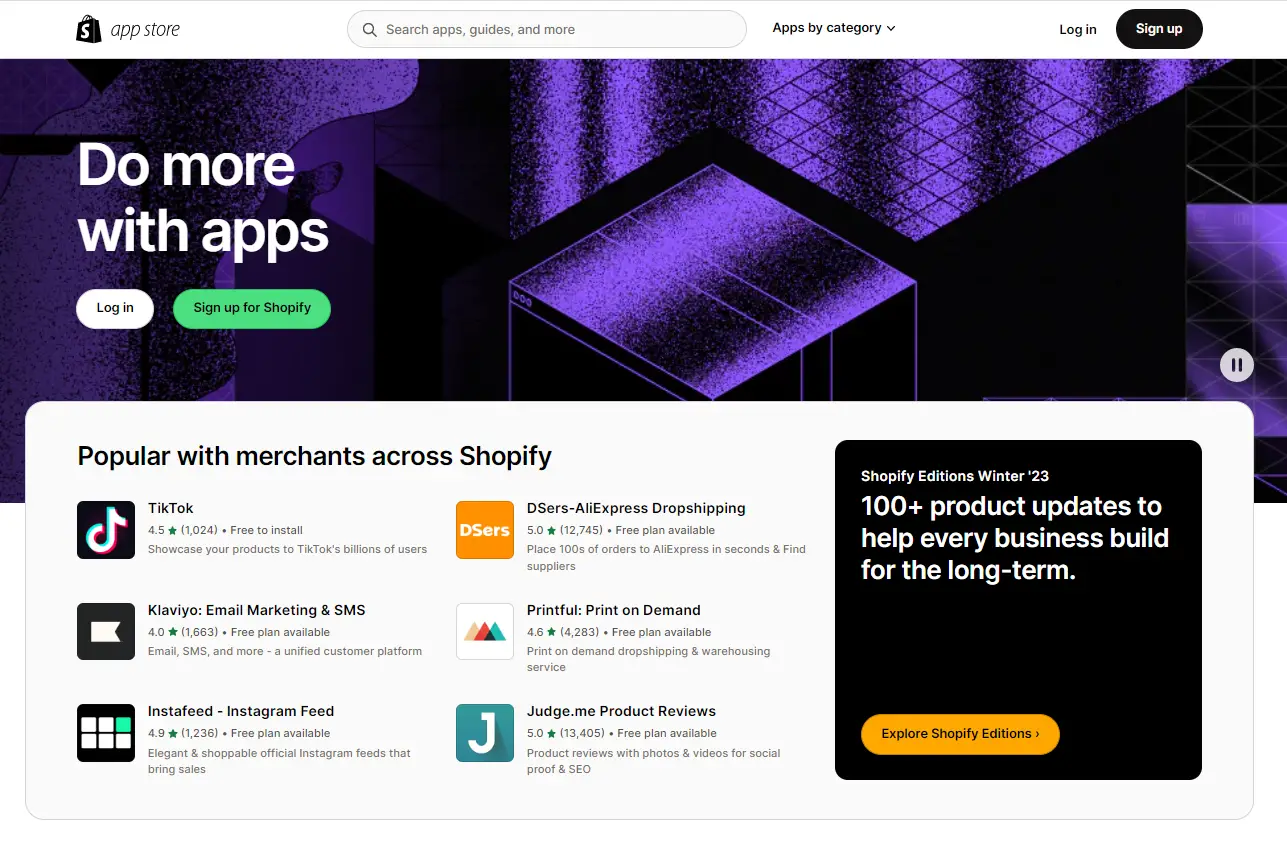
Shopify has a massive collection of apps and plugins, making it easy to add extra features and functionality to your store. Custom-built sites also have the option to add third-party apps, but they may require additional plugins or integrations, which can get pricey and complicated.
Third-Party Integrations
Shopify lets you easily integrate third-party apps and tools, like email marketing and social media platforms, into your store. Custom-built sites also offer the option to integrate, but it may require extra plugins or integrations to be installed.
Customer Support
Shopify has excellent customer support, with a knowledge base, forum, and 24/7 live chat. Custom-built sites require you to rely on your web developer for support and maintenance, which can be more time-consuming and costly.
Search Engine Optimization
“Are custom websites better for SEO?” This is one of the most asked questions when it comes to this topic. While custom sites have more control over certain technical aspects, Shopify has built-in SEO features and a large community of experts offering optimization services. You can easily enhance your website’s visibility and drive organic traffic, without having to worry about the technicalities.
Payment Processing
Shopify has various payment processing options, including credit card, PayPal, and Apple Pay. Custom-built sites also offer payment processing options, but they may require additional plugins or integrations to be installed.
Design and UX
Shopify has a wide range of templates and themes, plus the option to work with a Shopify Expert, to ensure you have a professional and user-friendly online store. Custom-built sites offer complete customization options, but it takes technical know-how to create a professional and user-friendly design.
Security
Shopify uses the latest security measures, like SSL certificates, to keep you and your customers’ information safe and secure. Custom-built sites also offer the option to use the latest security measures, but they may require additional plugins or integrations to be installed.
Scalability
Shopify is great for growing businesses because you can upgrade your plan as you grow. This means you’ll always have what you need to succeed. Custom websites might have trouble growing because they might need extra work or upgrades. With Shopify, you can easily scale up your online store and reach more customers with the help of their tools and resources.
Inventory Management
Shopify provides a comprehensive inventory management system that’s easy to use and keeps track of your stock levels with ease. On the flip side, custom-built websites may require additional software or plugins to effectively manage inventory, adding an extra layer of complexity.
Mobile Optimization
Shopify is optimized for mobile devices and offers a range of tools to ensure a seamless mobile shopping experience for customers. However, custom-built websites may not offer the same level of mobile optimization, potentially requiring additional development to ensure optimal mobile performance.
Integration With Social Media
Shopify makes it easy to integrate with popular social media platforms, providing a hassle-free way to reach new customers. In comparison, custom-built websites usually don’t offer the same level of integration with social media (unless you put a lot of money into them) and may require additional development or plugins to make it happen.
Hosting and Maintenance
Shopify provides all-in-one hosting and maintenance services, making it easy to manage your website without having to worry about the technical details. On the other hand, custom-built websites require separate hosting and maintenance services, which can be time-consuming and costly to manage.
So, who wins between Shopify and custom-built websites? It ultimately depends on you. If you’re looking for ease of use, extensive collection of apps, integration with third-party apps, customer support, and mobile optimization, then Shopify is the way to go. However, if you’re looking for greater control and customization options, then custom-built websites may be the better choice, although they come with a higher level of technical knowledge and investment required.
Pros and Cons of Both Options
Not quite sure which one to go for yet? Well, let me wrap things up for you by talking about the pros and cons directly.
Shopify

Shopify is a popular ecommerce platform that provides an easy-to-use solution for businesses of all sizes to sell their products online. It offers a wide range of benefits and features, but also has some limitations that need to be considered. Here are the pros and cons of using Shopify.
Pros
- Easy to use and navigate.
- Extensive collection of apps and integration with third-party apps.
- Mobile-friendly platform with mobile optimization tools.
- Comprehensive inventory management system.
- Customer support and web hosting services provided.
Cons
- Limited customization options compared to custom-built websites.
- Additional fees for custom design and advanced features.
- Dependence on Shopify for web hosting and maintenance services.
- Limited control over the platform.
Custom Sites

Custom-built websites are better in the way that offer a higher degree of control and customization options for businesses looking to sell their products online. However, this level of customization and control comes with additional challenges and costs. Here are the pros and cons of custom-built websites.
Pros
- Complete control over the design and functionality of the website.
- Ability to tailor the website to the specific needs of the business.
- No limitations on customization options.
- More control over the platform.
- Ability to integrate with a wider range of third-party apps and services.
Cons
- Higher level of technical expertise required.
- More time and money required to set up and maintain the website.
- Dependence on third-party web hosting and maintenance services.
- No comprehensive customer support provided.
- More challenging to manage inventory without additional software or plugins.
Factors to Consider Before Investing in Shopify or Custom Site
Making a decision between Shopify and a custom website can be a tough call, and it’s important to weigh the pros and cons of each option. Here are some crucial factors to keep in mind before you make a decision.
Budget
The big question is, how much are you willing to invest in your online store and what kind of return are you expecting? Shopify offers a variety of pricing options to suit different budgets, from basic packages to more comprehensive solutions. On the other hand, custom websites may cost more upfront, but they give you greater control and flexibility in the long run.
Technical Skills
Do you feel confident with coding, website design, and other technical aspects of building and managing an online store? Shopify is designed to be user-friendly, with a simple drag-and-drop interface and minimal coding required. However, custom-built websites require a higher level of technical knowledge, such as web design, coding, and database management, to set up and maintain.
Business Size and Future Growth
What’s the current size of your business, and what are your plans for future growth? Shopify is an excellent option if you’re someone who’s just starting out with a small business, while custom-built websites are more suitable if you’ve got an established business with larger products and a focus on future growth.
Required Features And Functions
What features and functions are non-negotiable for your online store to run smoothly? Shopify offers a host of built-in features and integrations with third-party apps. However, custom-built websites offer greater customization options and can be tailored to meet your specific business needs.
Brand image
Your online store is a reflection of your brand. Shopify offers a range of customizable templates and themes that can be adjusted to match your brand, while custom-built websites offer complete control over the design and look of your store, allowing you to create a truly unique brand image. Keep the image you want to convey to your customers in mind when choosing between Shopify or a custom-built website.
Customizability
How much control do you want over the look and feel of your online store? Shopify provides a variety of features and integrations, but custom websites can offer even more control, like custom databases and shipping rules. However, custom websites also come with extra development costs and time investment. Think about what’s important to your business and choose the option that gives you the right balance of control and ease of use.
Integration
Integration is key, and Shopify provides seamless integration with a wide range of third-party apps to make your life easier. With a custom site, however, you’ll need to put in extra work to integrate with the tools and services you need.
Payment Processing
Payment security is essential when it comes to running an online store. Shopify provides a secure and reliable payment processing solution, while you’d need to put in extra work to integrate with preferred payment gateways if you opt to get a custom site.
Marketing
Marketing is crucial for the success of any business. Shopify offers a range of marketing tools and integrations with popular platforms. If you go for custom websites, though, then you might need to invest in more development or plugins to get the marketing capabilities you want.
What Factors Go Into The Overall Costs Of Both Shopify And Custom Sites?
Both Shopify and custom websites come with their own costs, including ongoing fees and one-time expenses. In this section, I’ll give you a closer look at the various cost factors involved in both options.
Shopify Costs
Here’s an overview of Shopify’s costs.
Monthly Subscription
Shopify offers a subscription-based model, where you pay a monthly fee based on the plan you choose. The basic Shopify plan starts at $29 per month, while the advanced Shopify Plus plan is priced at $2,000 per month.
Payment Processing Fees
Shopify charges an additional fee for each transaction processed through their platform, ranging from 2.0% for the Basic Shopify plan to 0.15% for the Shopify Plus plan.
Additional App Costs
Shopify offers a range of third-party apps that can be used to enhance your online store’s functionality. Some of these apps come with additional monthly fees.
Custom Domain Name
If you want to use your own domain name for your Shopify store, you will need to purchase one separately. This can cost anywhere from a couple dollars per year to several hundred dollars, depending on the domain name you choose.
Themes and Customizations
Shopify offers a wide range of themes and customization options, some of which come with additional costs.
Custom Sites
When it comes to the overall costs of custom websites, there are several factors to consider:
Development Costs
Building a custom website from scratch requires the expertise of a web developer, which can be a pricey investment. Expect to fork out several thousand dollars for their expertise and experience in creating your dream website from scratch, as well as any necessary updates and modifications.
Hosting Costs
To keep your custom website live and accessible, you’ll need to secure a web hosting service. The cost of hosting a custom website varies widely based on factors such as the site’s complexity, the hosting provider, and the amount of resources required. Expect to pay anywhere from a few dollars a month for a basic shared hosting plan to several hundreds of dollars per month for a feature-rich dedicated server.
Maintenance Costs
To keep your custom website in tip-top shape, you’ll need to allocate budget for regular maintenance. This includes fixing bugs, addressing security risks, and ensuring optimal performance. The cost of maintenance will depend on the size and complexity of your site, but it can range from several hundred to several thousand dollars per year.
Payment Processing Costs
To make sales, you need a payment gateway that you can trust. These gateways often charge a fee for each transaction processed, so it’s important to factor that into your budget. For custom sites, payment gateway providers usually charge a transaction fee for each sale, which can range from 0.2% to 3% of the total transaction amount, plus a fixed fee of around $0.30 per transaction. Additionally, some payment gateway providers can charge a monthly fee for using their services.
Marketing Costs
To drive traffic to your custom website and increase sales, you’ll need to put some effort into marketing. This can include investments in tactics such as email marketing, social media advertising, and search engine optimization. The cost of marketing a custom website can vary greatly depending on the strategies you choose, but expect to budget several hundred to several thousand dollars a year for marketing efforts.
When compared to Shopify, custom websites often require a larger initial investment and ongoing costs for development, hosting, maintenance, and marketing. It’s important to weigh the potential long-term benefits of a custom website against these costs to determine if it’s the right choice for your business.
Custom vs. Shopify: So What’s The Answer To The Dilemma?
“Is it better to create your own website or use Shopify?” This is a question that many business owners ask themselves when setting up an online store. On one hand, custom websites give you the ultimate control over the design and functionality of your store. On the other hand, Shopify offers a user-friendly platform with a wide range of features and tools that can simplify the process.
So, what should you get? Well, it really depends on your specific needs and resources. If you have the technical expertise and time to create and manage a custom website, then go for it! But if you’re looking for a more streamlined solution, Shopify may be the perfect choice for you.
In the end, the choice is yours. Consider your priorities and what will work best for your business, and make your decision based on that.
Other Alternatives To Custom Websites
When it comes to creating an online store, you have more options than just choosing between Shopify or a custom website. There are four popular alternatives that each offer unique benefits for your ecommerce business.
WooCommerce
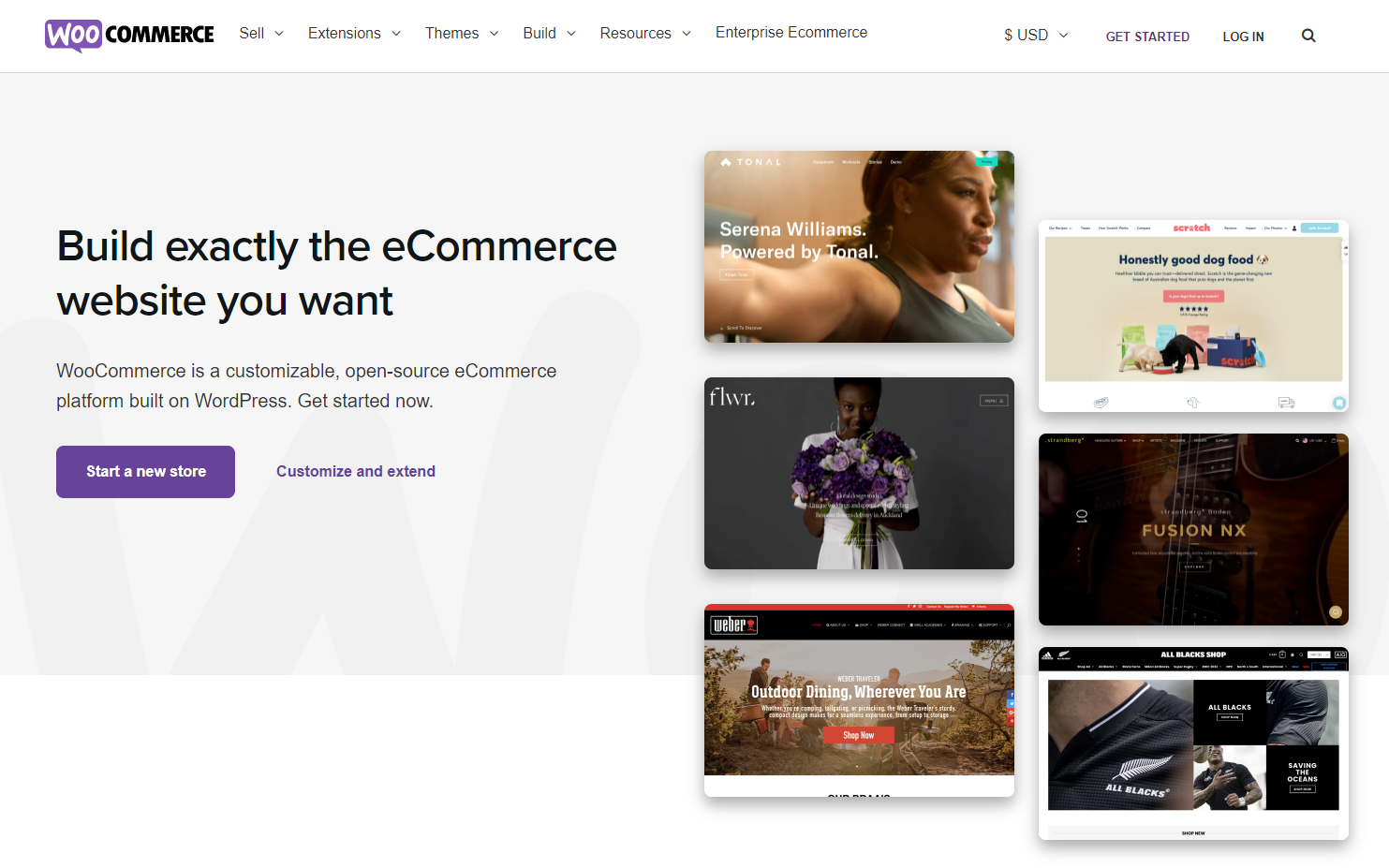
If you’re looking for a flexible and customizable solution for your small to medium-sized business, then WooCommerce could be the perfect choice for you. This open-source plugin for WordPress has a huge community of developers behind it, meaning there are plenty of plugins and themes available to enhance the functionality and design of your store.
Magento
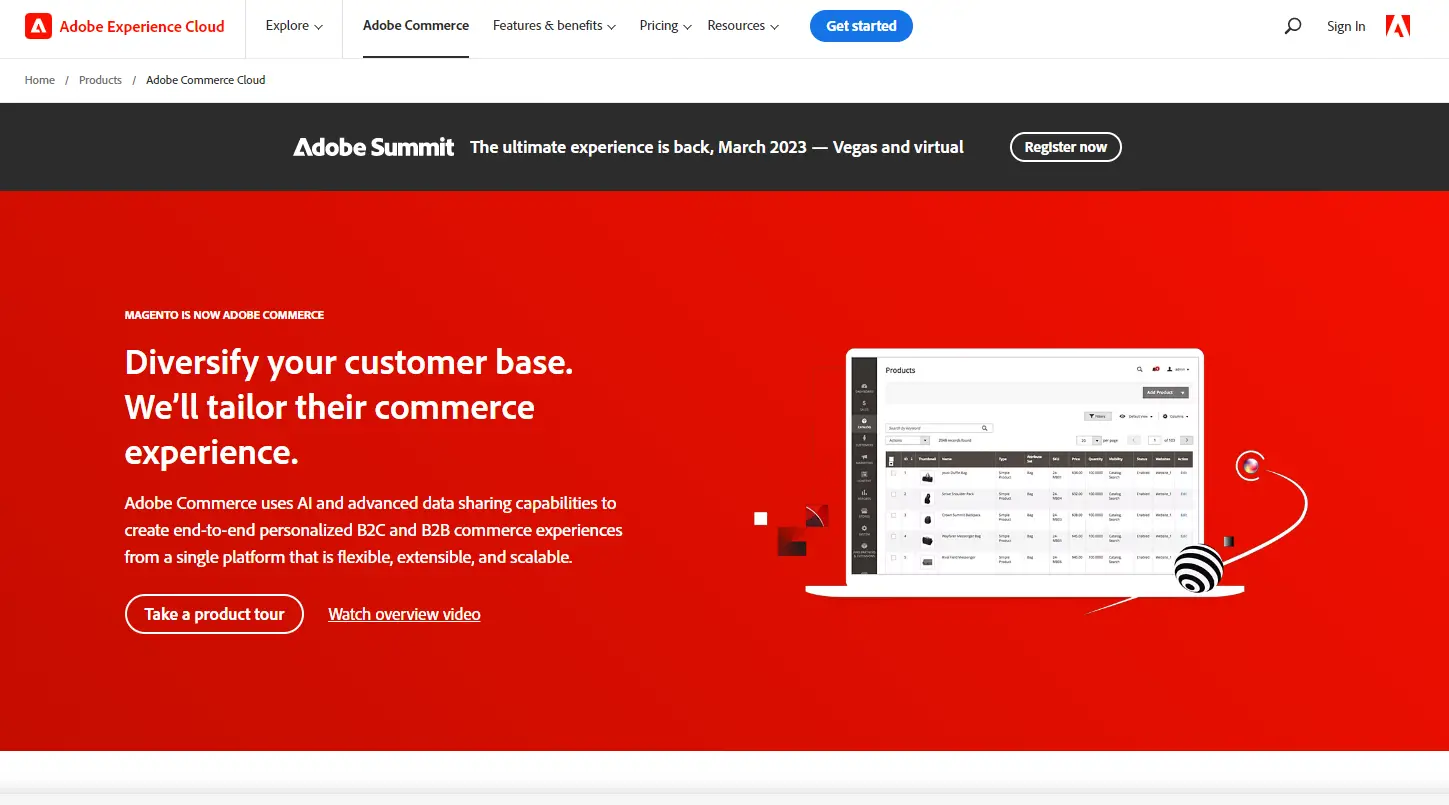
If your business is on the larger side and you have complex ecommerce needs, then Magento could be worth considering. This platform is known for its scalability and offers robust features for managing products, orders, and customers. Plus, the extensive marketplace for extensions and plugins means you can really make Magento work for you.
BigCommerce
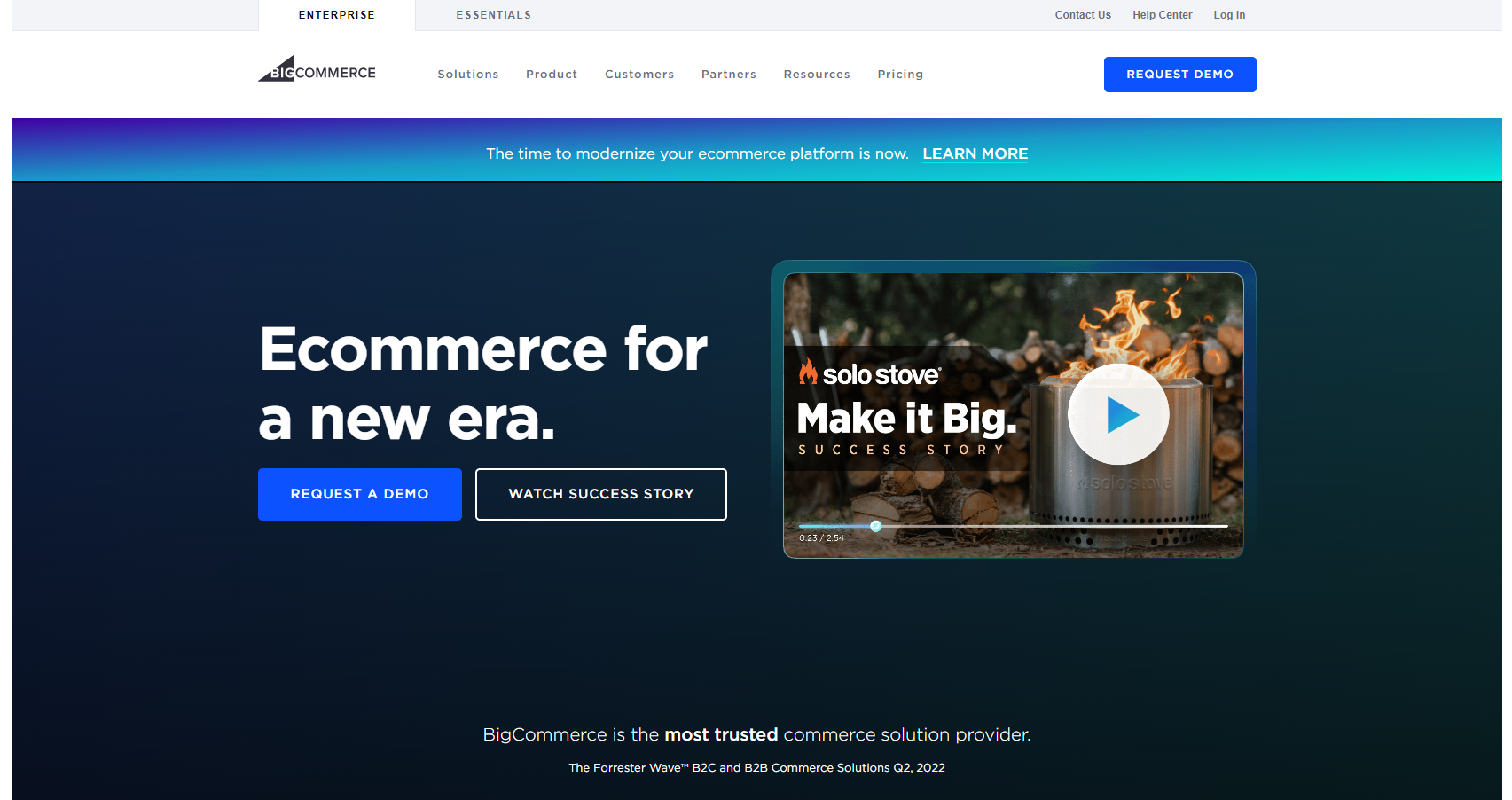
If you’re looking for an all-in-one ecommerce platform that’s easy to use, then BigCommerce could be the way to go. With built-in features like a robust catalog management system and integrated payment options, this platform is ideal for businesses that want a comprehensive solution without having to invest in technical expertise.
Squarespace
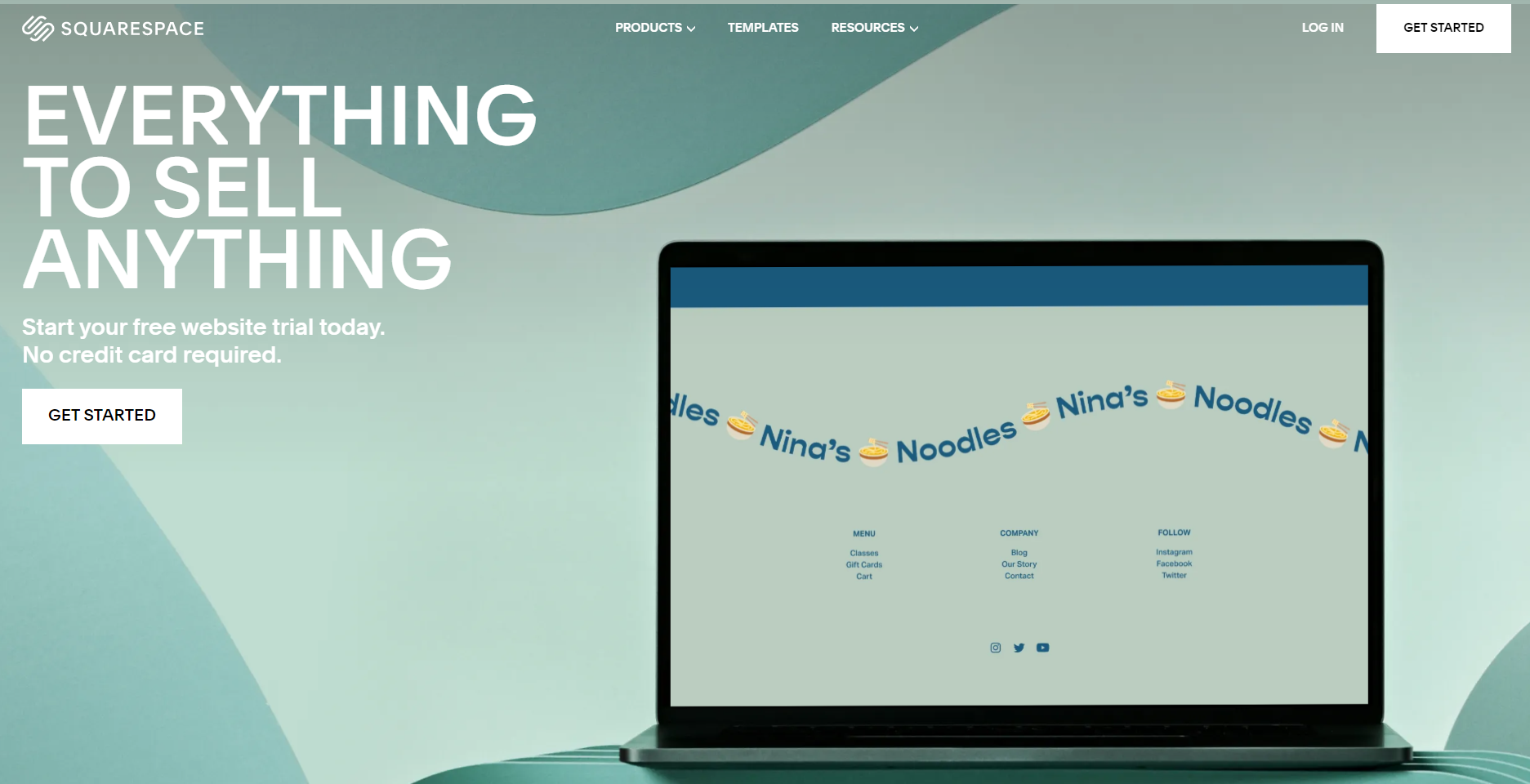
If you’re looking to establish a strong online presence with a professional-looking website, then Squarespace could be the perfect fit. With its sleek design templates and intuitive website builder, you can create a beautiful website with ease. Although its ecommerce capabilities are limited compared to other platforms, it’s still a great choice for businesses primarily focused on showcasing their products and services.
Each of these platforms offers its own unique benefits, and the right choice for you will depend on the size of your business, the complexity of your ecommerce needs, and your technical expertise. So take a good look at each option and choose the one that’s right for you.
FAQs
Q: How much should I pay someone to build a Shopify website?
A: The cost of building a Shopify website varies and can range anywhere from a few hundred to several thousand dollars (especially if you hire a Shopify developer), depending on the complexity of the design and features you require.
Q: What is the average cost for a custom website?
A: The cost of a custom website also varies, but it typically starts from several thousand dollars and can go up significantly, depending on the features and level of customization required.
Q: Which is better for eCommerce: Shopify or custom website?
A: While the answer varies from person to person, I’d personally suggest Shopify. It takes care of a lot of things regarding the technical side of eCommerce for you. That means you can spend more time on developing better business strategies. If web development is no big deal for you though, then custom sites are good.
Q: Can you use a custom website with Shopify?
A: Yes, you can use a custom website with Shopify by integrating your Shopify store with your custom website.
Q: Can I use my own website with Shopify?
A: Yes, you can integrate your Shopify store with your existing website.
Q: How long does it take to make a Shopify website?
A: The time it takes to build a Shopify website varies, but it typically takes a few weeks to a few months, depending on the complexity of the design and features you require.
Final Thoughts
When it comes to launching an e-commerce website, the choice between Shopify and custom-built options can be a tricky one. While Shopify is superb with its user-friendly interface and array of features, custom-built websites offer unparalleled control and customization. The platform that ultimately fits your business best will depend on your unique needs and goals.
And if you’re still on the fence, fear not – there are alternative platforms worth exploring, after all. So, weigh your options carefully and choose the one you like the most. Ultimately, all the non-custom platforms are well made and with the right operation, they can help you soar to success with your eCommerce business.
Related Articles On Shopify
- Shopify 120 Day Trial
- Shopify 60 Day Trial
- Shopify 45 Day Trial
- Shopify 30 Day Trial
- Shopify 21 Day Trial
- Shopify Free Trial Limitations
- What Happens When Shopify Trial Ends?
- Shopify Unlimited Free Trial
- Shopify Free Trial Extension
- Can You Sell Used Items on Shopify?
- Can I Start Selling on Shopify in My First Free Trial
